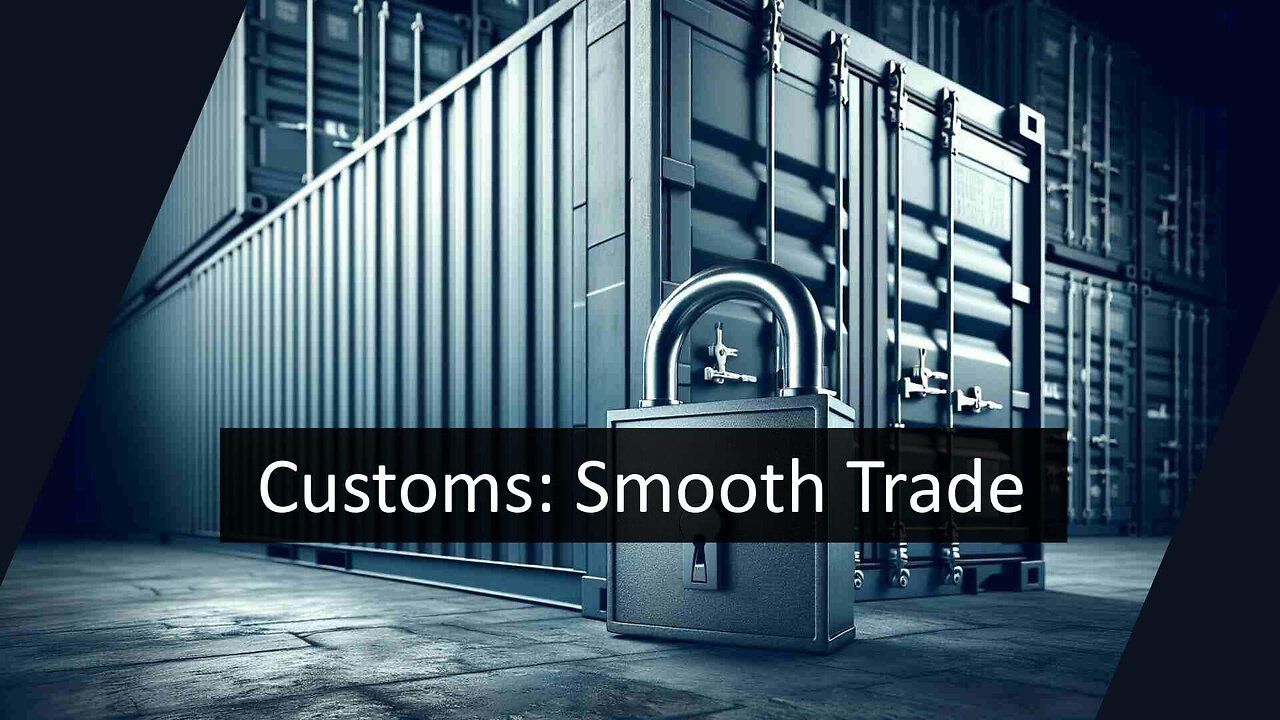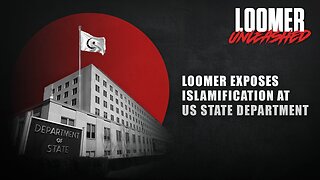Premium Only Content

Streamlining International Trade: The Role of State Customs Committees
ISF Template | 562-453-7357 | isf@isftemplate.com | www.isftemplate.com
The State Customs Committee serves as the central authority for customs matters at the national level, playing a crucial role in international trade. It is responsible for policy development, customs control, tariff classification and valuation, customs clearance, customs bonds administration, trade facilitation, international cooperation, and capacity building.
Policy development is a key function of the committee, as it establishes customs policies, procedures, and regulations that align with national trade and security objectives. These policies are designed to promote efficient and transparent customs procedures while adhering to international standards and conventions.
Customs control is another important responsibility of the committee, as it oversees measures to prevent illegal activities such as smuggling, money laundering, and trade fraud. This involves implementing risk management techniques and utilizing advanced technologies to effectively target high-risk shipments.
Tariff classification and valuation are critical aspects of customs operations, and the committee establishes and maintains a harmonized tariff classification system. This system guides importers and exporters in properly classifying goods and sets valuation methods to determine the customs value for duty calculation.
Customs clearance is a multifaceted process, and the State Customs Committee ensures that importers and exporters comply with customs requirements. This includes verifying documentation, assessing duties and taxes, and conducting inspections when necessary to ensure compliance.
Customs bonds are required for various purposes, and the committee administers customs bond programs to provide financial security. These bonds ensure compliance with customs regulations, including the payment of duties and taxes, facilitation of temporary importations, and adherence to licensing requirements.
Trade facilitation is a key focus of the committee, and it works to streamline customs processes and reduce barriers to trade. This involves implementing modern customs automation systems, simplifying documentation requirements, and promoting mutual recognition programs with other countries.
International cooperation is essential for effective customs operations, and the committee collaborates with customs authorities from other countries and regional organizations. This collaboration includes the sharing of information, conducting joint operations, and participating in trade facilitation initiatives to promote international trade cooperation and enhance border security.
Finally, the State Customs Committee is responsible for capacity building within the customs workforce. It provides training programs, workshops, and exchanges to enhance the professionalism, efficiency, and integrity of customs officers.
Overall, the State Customs Committee plays a crucial role in ensuring the integrity of customs operations and facilitating smooth trade flows. Its responsibilities encompass a wide range of areas and contribute to a secure, efficient, and transparent customs environment.
#usimportbond #isfcustomsbroker #uscustomsclearing #isfentry
Video Disclaimer Here: This video is designed for education and is unaffiliated with US government bodies.
State Customs Committee is essential for international trade by ensuring compliance with regulations, collecting duties and taxes, and protecting borders.
The committee develops customs policies aligned with national objectives and international standards to foster efficient and transparent customs procedures.
It oversees customs control measures to prevent illegal activities like smuggling and implements risk management techniques using advanced technologies.
State Customs Committee handles tariff classification, valuation, customs clearance, and administers customs bond programs to ensure compliance with regulations.
Its role includes trade facilitation, international cooperation, and capacity building to streamline customs processes, enhance border security, and improve customs workforce professionalism and efficiency.
-
 2:14:18
2:14:18
The Pascal Show
13 hours ago $0.40 earnedTHEY LIED TO POLICE AGAIN? Jake & Rebecca Haro Have Lost Their Minds! Emmanuel Haro Search Continues
4.66K -
 1:25:52
1:25:52
TruthStream with Joe and Scott
2 days agoSG Sits Down w/ LT From "And We Know": An 80K FT View of Humanity's Great Awakening from 8/22/2025
15.8K16 -
 15:54
15:54
Lacey Mae ASMR
11 hours ago $0.68 earnedASMR For Sleep in 15 Minutes!
9.13K7 -
 3:16:38
3:16:38
Price of Reason
12 hours agoTrump FIRES Fed Governor Lisa Cook! Cracker Barrel CRISIS Continues! James Gunn DCU Woes! Gamescon!
111K7 -
 2:25:01
2:25:01
FreshandFit
7 hours agoTyreek Hill Pays Ex Wife $1 Million in Ongoing Fees From Divorce?!
34K3 -
 2:03:46
2:03:46
Inverted World Live
8 hours agoHaunted Dolls Hack Amazon Alexa | Ep. 98
106K2 -
 3:09:53
3:09:53
Laura Loomer
9 hours agoEP140: Loomer EXPOSES Islamification At US State Department
35.7K12 -
 3:05:00
3:05:00
TimcastIRL
9 hours agoTrump Floats Accepting 600,000 Chinese Student Visas, MAGA Uproar | Timcast IRL
213K159 -
 8:44:47
8:44:47
SpartakusLIVE
14 hours ago$20,000 Hide and Seek Tourney w/ Stonemountain64 || #1 Rat wins the BIG CHEESE
71K -
 2:34:02
2:34:02
Barry Cunningham
10 hours agoLISA COOK | ADAM SCHIFF | LETITIA JAMES | ARE THEY BEING SACRIFICED BY THE DEEP STATE?
104K66